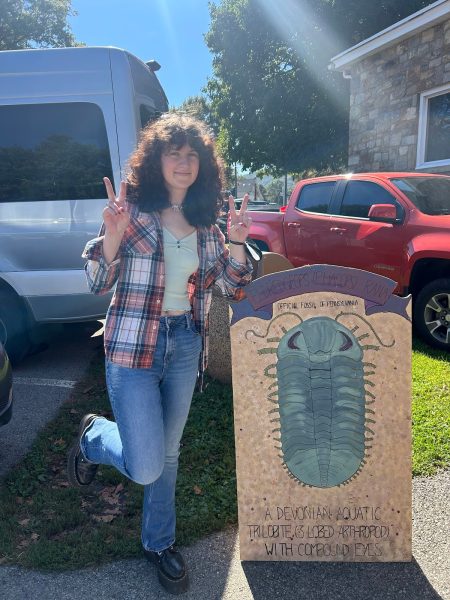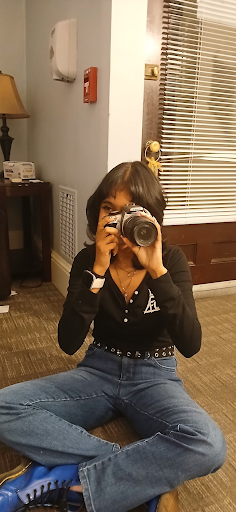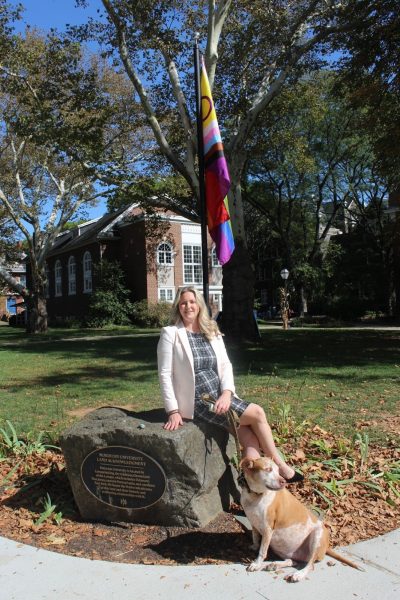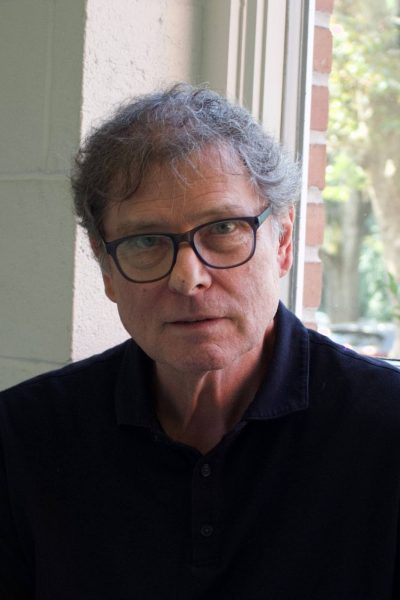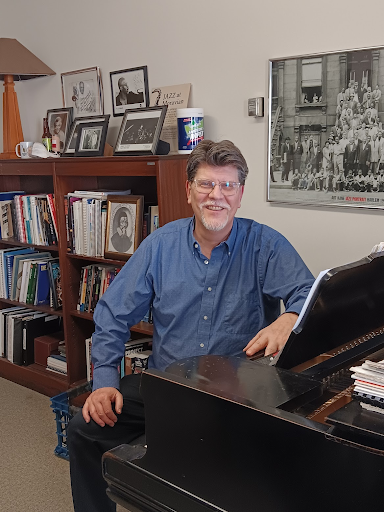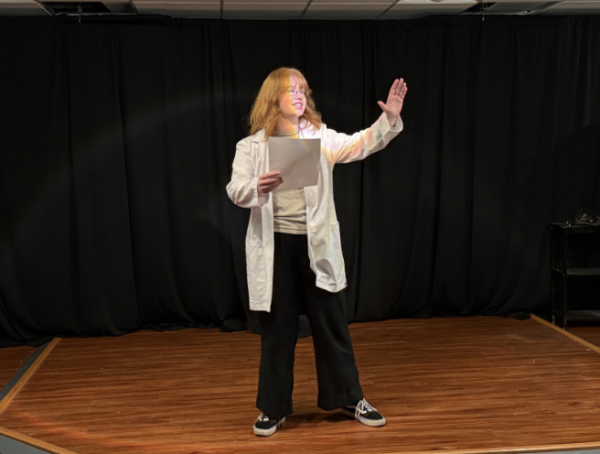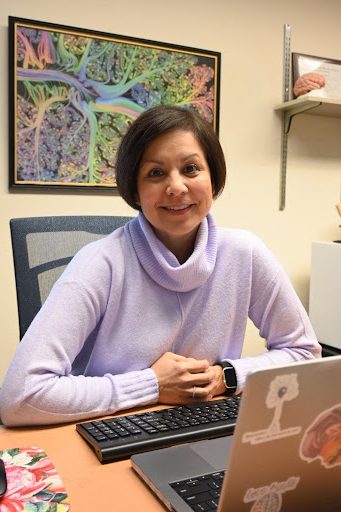Professor Spotlight: Dr. Dana Dunn
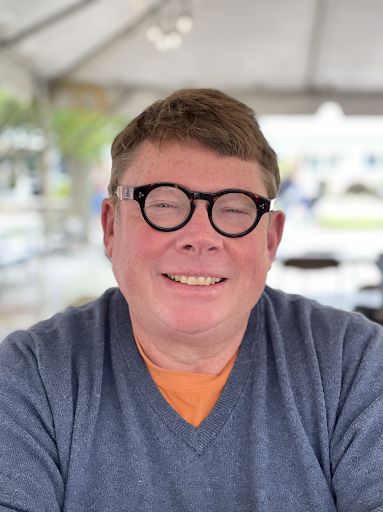
Photo courtesy of Natalia Hanson-Richart
Dana S. Dunn is a professor of psychology at Moravian University. He earned his Ph.D. in experimental social psychology from the University of Virginia and his B.A. in psychology from Carnegie Mellon University. Professor Dunn is the author or editor of over 35 books and he writes a blog on teaching psychology titled “Head of the Class” for Psychology Today.
What inspired you to go into your field of study?
I’ve always been interested in what makes people think and act the way they do. What can be more interesting than people? The good and bad behavior we’ve witnessed during the pandemic is a real and recent example. People’s motivations are fascinating. We are subject to situational pressures that we are not even aware of. Please note that I’m a social psychologist, not a clinical psychologist—I’m interested in aspects of how people navigate their everyday social lives.
What research are you currently working on?
I’m writing two chapters for separate books. One is on disability identity, the sense of community and pride that can have beneficial effects on and among disabled persons. The other chapter is on ableism, or prejudicial attitudes, and discriminatory behaviors that nondisabled people hold towards disabled people; sometimes these feelings and behaviors are intentional (conscious) and other times unintentional (nonconscious), but they nonetheless have consequences for the social experiences and daily lives of people with disabilities. I’ve got a bunch of book projects waiting in the wings that I’m working on. Happily, I’m very busy.
What do you think is the most recent important development in your field of study?
It’s not really a brand new development, but the research on prejudice and discrimination in social psychology is very important; it is essential to recognize that even well-intentioned and caring people can unknowingly harbor negative attitudes that become actual—if usually subtle—behaviors directed at the very people they claim to respect and want to help. That’s why it’s never a good idea to claim things like “I don’t see race or religion or sexual orientation,” or you fill in the blank; claiming innocence is naïve and risky. We’re learning that changing people’s attitudes on the surface is not sufficient, we have to worry about the attitudes that may be lying below, and the way out of that is for people to be very conscious about what they are saying or doing.
What job would you have if you couldn’t be a professor, regardless of salary and job outcome? Why?
I’d probably be a writer. I’m very interested in art and architecture, and I had no idea there was such a thing as architectural historians. In the last few years I thought that I would have enjoyed being an architectural historian, someone who studies the aesthetics and works of great architects whose buildings have changed our collective lives for the better. I think it’s fascinating to know why an architect made certain design decisions.
What do you know now that you wished you knew when you were in college?
The importance of time – it seems infinite when you are in your teens and even twenties. But as you get older you realize it’s speeding up and it’s limited. If I can include a second one, finding a purpose or direction for your life and your work. If you do, you will always be happy.
What is your biggest student pet peeve?
When some students fail to realize their four years in college are the most important ones of their lives. This is the time to be daring and curious, to make, read, and study things you likely won’t be able to again unless you have time and are disciplined. If you said to yourself, “Well I can’t write poetry,” still take a poetry class. If you say “I’m lousy at art,” still take an art class, or at least an art history class. I’m always sad when students don’t take advantage of opportunities that are here or in any academic situation. This is the only time that you’re going to be able to do it because you are going to be working, or going to graduate school, or raising a family. All those things are important, but they take up your discretionary time. If you don’t do that then you won’t discover the things you’re fascinated by. One of the reasons I became a professor is that I realized in my first week of my undergraduate experience that I never, ever wanted to leave. And I haven’t.
What was the last streaming show that you binge-watched or the last good book that you read?
I’m thinking about getting rid of my television because I never watch it. I suppose I should say “The Chair,” which is about academic life and it takes place in an English department. But I do read a lot and, fortunately, not all psychology works. I read a wonderful book about the art and life of the renaissance painter, Caravaggio this summer, as well as a terrific book called “The Work of the Dead,” which deals with the cultural importance and history of people’s remains—it sounds grim but it’s fascinating. For some of us, our work isn’t over when we take our last breath.
What is something interesting about you that most people don’t know?
Once upon a time, I wanted to be an artist. During my childhood and adolescence I did a lot of art, including drawing and painting. I even thought of studying art to become an artist during college, but I realized I didn’t have the technical skills or talent to do so. Fortunately, I settled on psychology. I still draw or paint once in a while—I tell myself there is a place in the world for bad art. And so there is.
What animal do you feel you identify with? Why?
Easy: dogs. I love dogs. I currently have two. They are loyal and provide unconditional love. They are always excited to see you, and sad to see you go. While they can’t talk (which may be a blessing for them and for us), they can communicate and are very affectionate.
If you had to choose one quote that you live your life by, what would it be and by whom?
There’s a story that Frank Lloyd Wright, an irascible person but a genius architect, once had the rear window removed from one of his cars, and then the void was covered over by metal. Why? Because Wright, who led a tumultuous and chaotic life at times, said, “I never look back.” I don’t either. Nostalgia or longing for the past or engaging in regret is a mistake. Look ahead, never back. I believe the best is yet to be.




